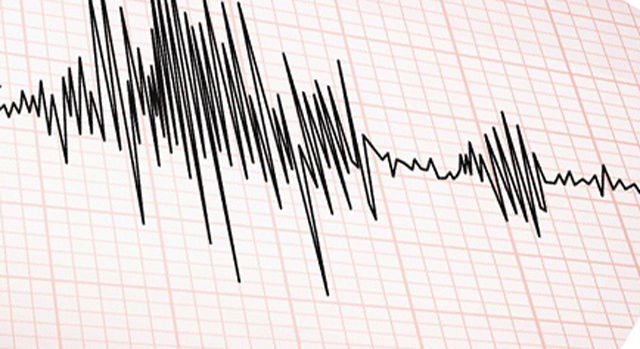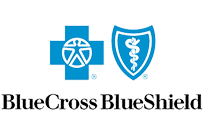There are many benefits of using biosound therapy for addiction treatment. Biosound therapy can be used to treat co-occurring disorders, and decrease feelings of discomfort during the recovery process. These are conditions that put you at risk for relapse. When used in combination with other evidence-based methods, biosound therapy can make a big difference in staying sober.

What Is Biosound Therapy?
Biosound therapy is a type of therapy where you sit in a specialized chair covered by a blanket. This chair sends minor vibrations to various parts of the body using different beats and timing to help produce feelings of relaxation and ease. These vibrational patterns can have a powerful and positive effect on the brain.
Binaural audio is also used to reinforce these feelings, mirroring the theta or even lo-alpha brain waves. These are the waves present when you feel relaxed and focused. When your nervous system is at ease, you’ll be able to fall into a deeper state of relaxation. As a result, the heartbeat will slow and cortisol levels will drop, reducing stress. This is why biosound therapy is particularly effective in helping people with depression and anxiety
How Biosound Therapy Works
Biosound therapy produces binaural beats that can create a theta-level meditative state. When your brain is in a theta-level meditative state, it’s more receptive to receiving positive affirmations through tones and gentle suggestions. Besides theta, there’s also delta, which is brought on by deep sleep. On the other hand, when you’re active and alert, a state of beta or even gamma wave activity is produced. Your brain changes frequencies throughout the day, so biosound therapy is merely making beneficial use of this fact.
Biosound therapy in addiction treatment allows you to manipulate these waves for your own benefit. This form of therapy synchronizes your body and central nervous system. This is done by using the natural progression of the pattern exhibited by the brain to create patterns in the rhythm of heartbeats. As you enter a state of theta, biosound therapy encourages a state of relaxation to take over. When your body is in this state, it’s easier for it to recover and receive positive affirmations that target negative thinking patterns.
How Frequency Waves Are Used in Biosound Therapy
Frequency waves are used in biosound therapy to induce different emotional states. Research shows that listening to binaural beats for a suggested amount of time can positively impact your behavior and sleep cycles. There are different categories of a frequency pattern, including:
Delta pattern: Binaural beats in the delta pattern function at a frequency of 0.5–4 Hz associated with dreamless sleep. People who receive a delta pattern frequency during sleep enter a deeper stage of sleep, according to electroencephalogram (EEG) brain scans.
Theta pattern: In a theta pattern, binaural beats are set to a frequency of 4–7 Hz. Theta patterns can improve meditation, creativity, and sleep in the rapid eye movement (REM) phase.
Alpha pattern: Binaural beats in the alpha pattern operate at a frequency of 7–13 Hz and may induce feelings of relaxation.
Beta pattern: Binaural beats function at a 13–30 Hz frequency in the beta pattern. This frequency helps to increase concentration and alertness. However, it’s important to note that anxiety can occur at the higher end of the range.
Gamma pattern: The gamma pattern operates at a range of 30–50 Hz. This frequency can promote the maintenance of arousal while you’re awake.
Biosound Feedback Beds
Beds that draw upon biosound therapy have gained popularity in recent years as part of an overall holistic approach to addiction treatment. We have seen the effectiveness of biosound beds firsthand at some of our Footprints to Recovery locations that use this approach.
This is how it works. During a biofeedback session, you lay on a specialized biosound bed. As you relax on the bed, a therapist will show you various auditory and visual stimulations. You may also receive pulsed through the bed. The therapist may guide you through imagery and use various auditory frequencies that help you enter deep relaxation.
When you’re in this deep form of relaxation, you’re able to identify and control your emotional state more readily. Your therapist may guide you through visuals or auditory stimuli to help control your heart rate, breathing, and other central nervous system functions. These functions are tied to conditions like anxiety, insomnia, depression, and others.
A biosound therapist will have you do exercises that help you reduce negative emotions and thoughts. In short, biosound beds and biosound feedback help you manage the physical reactions tied to emotions and thus can help take the power away from these unwanted experiences. You’ll also learn how to react to stresses, challenges, and negative emotions in more affirmative, helpful, and productive ways.
Benefits of Biosound Therapy in Addiction Treatment
The goal of biosound therapy is to calm the body and mind through a precise use of guided imagery and sound frequencies. The targeted use of low frequencies can help break old thinking patterns and self-doubt. Biosound therapy in addiction treatment can especially help to relieve anxiety and depression during the addiction recovery process. Many unpleasant symptoms can be regulated through repeated biosound therapy sessions.
Recovering individuals may find themselves operating in a negative emotional and mental state. Addiction can leave you feeling drained and sometimes even hopeless. Biosound therapy can help you learn to better regulate emotions.
Biosound therapy has also been effective in relieving symptoms such as:
- Low moods as a result of conflict or triggers during the day
- Depression
- Anxiety
- Shakes, tremors, and other withdrawal symptoms
In fact, it typically takes only a few sessions to reap the benefits of biosound therapy. You may notice yourself thinking differently throughout the day in a more positive manner. The positive affirmations used in biosound therapy resonate within consciousness, thus breaking toxic thought patterns that may have previously led to troublesome behaviors and emotions.
When Is Biosound Therapy Most Beneficial?
Biosound therapy can be especially useful during the detoxification process. Detox can feel overwhelming for some people. Biosound therapy can help with discomfort during detox through vibrational sound therapy.
Detox is a process where your body rids itself of harmful toxins from substance use. At Footprints to Recovery, our medical team provides 24/7 care during detox. We help you stop using drugs and alcohol while easing withdrawal symptoms in a safe, comfortable setting.
Biosound therapy during detox can help you feel more at ease mentally and emotionally. Withdrawal symptoms often include depression, anxiety, mental fatigue, and physical discomfort. Through different frequencies, these unpleasant emotions can be significantly lessened.
Biosound therapy also helps with hopelessness and a lack of motivation that can lead to relapse. Relaxing vibrational frequencies can help prevent erratic actions from heightened emotions during times of stress.
What Other Therapies Can I Expect to Receive in Addiction Treatment?
Addiction treatment is made up of many different key components, which include evidence-based therapies, holistic care, and other treatment services. During addiction treatment, you’ll engage in a variety of different therapies to best treat both the substance use disorder and any co-occurring disorders. Here are a handful of different therapies for addiction that our recovery center offers:
Cognitive Behavioral Therapy (CBT)
Cognitive-behavioral therapy (CBT) focuses on changing negative thinking patterns that result in undesired feelings and habits. The link between thoughts, feelings, and behaviors is a major component of cognitive-behavioral therapy.
Our CBT therapists will help you recognize cognitive distortions that enable any toxic habits, such as using a substance or self-sabotaging. Cognitive distortions are the defective and irrational ways of thinking that may seem convincing but are actually illogical and damaging.
Dialectical Behavioral Therapy (DBT)
Dialectical Behavior Therapy (DBT) is commonly used to treat mood disorders such as:
- Depression
- Bipolar disorder
- Post-traumatic stress disorder
- Anxiety disorders
- Eating disorders
Dialectical behavior therapy is based on CBT, with greater focus on mindfulness. DBT was developed to help people cope with extreme or unstable emotions and harmful behaviors. DBT is sometimes used in:
- Group therapy to build recovery skills
- Individual therapy focusing on past traumas and current triggers
- Phone coaching utilizing treatment interventions between sessions
Family Therapy
Family therapy uses multiple clinical therapies to rebuild the family dynamic and improve communication. All members of the family get involved and can openly share their thoughts and feelings. The primary goal of family therapy is creating harmony and forming stability in the recovering individual’s life.
Group Therapy
Group therapy takes place with your fellow peers on the road to recovery. Group therapy provides a judgment-free space that encourages open discussion and accountability during the addiction recovery journey. The goal of group therapy is for participants to share their own personal stories and learn that they’re not alone in their struggle. You can support others while receiving it right back.
Looking For Help?
Biosound therapy is a powerful tool used in addiction treatment. Being able to alter and induce your state of mind allows you to manage your emotional experience. The use of sound frequencies is used in addiction treatment to break negative thinking patterns and replace them with positive ones. Biosound feedback beds are sometimes a part of our overall holistic approach to treatment, which includes a blend of traditional and alternative therapies. To learn more about our therapies and treatment programs, call us today for a free, confidential consultation.
Questions about treatment options?
Our admissions team is available 24/7 to listen to your story and help you get started with the next steps.











